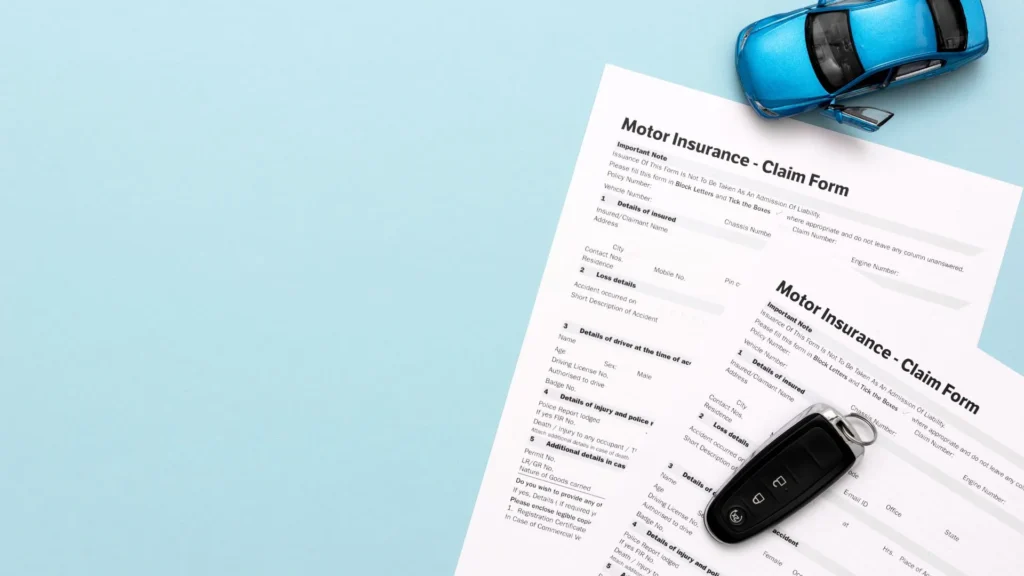Does Car Insurance Cover Flat Tires
Unfortunately, full coverage car insurance does not typically cover flat tires. It might cover the damage from a covered incident like a collision or vandalism. However, if included in the policy, roadside assistance may help with flat tire situations, offering coverage for services like tire changes or towing.
Does Car Insurance Include a Tire Protection Plan?
No, standard auto insurance policies do not include a tire protection plan. However, optional coverages like comprehensive and collision insurance may cover tire damage from non-accident events such as vandalism or potholes. Individuals can explore separate tire protection plans retailers offer for wear and tear or road hazard damage to enhance tire coverage.
Consider Custom Parts and Equipment Coverage
Custom parts and equipment coverage (CPE) is crucial for protecting custom wheels or rims on your vehicle. In the possibility of a covered accident, this coverage, like Progressive’s, can repair or replace custom parts, such as wheels, which may have a higher replacement cost than standard components, offering protection up to $5,000.
Will Car Insurance Cover Slashed Tires?
Yes, insurance will cover slashed tires under comprehensive coverage. Contrary to a common misconception, the coverage extends to any number of slashed tires, not just four. Comprehensive insurance protects against non-collision events, such as vandalism, making it applicable for claims involving slashed tires.
Does Insurance Cover Tire Damage from Potholes?
No, car insurance usually doesn’t cover flat tires unless it results from an accident. However, certain insurers, like Progressive, offer optional roadside assistance coverage for tire changes, tows, jump-starts, and fuel delivery. This additional coverage can be valuable in situations not covered by standard insurance policies.
Does Car Insurance Cover Tire Wear and Tear?
No, car insurance generally does not cover tire wear and tear. However, in certain states, you can file a claim for tire damage caused by potholes and road conditions on government-maintained streets. Coverage requirements vary by state, so checking local laws for potential protection is essential.
Does Insurance Cover Rims?
Yes, insurance can cover rims, but it depends on the circumstances. Factory-installed rims are typically protected by collision or comprehensive coverage for damage or theft. However, if you install custom rims as a modification, you must inform your insurer to ensure coverage, as claims may be denied if modifications are not disclosed.
Tire Insurance Explained
Tire insurance, a separate coverage often offered by retailers, protects tire-related issues. It can cover tire repair or replacement expenses due to road accidents or wear and tear damage. This coverage is distinct from standard auto insurance and can be tailored to specific timeframes or mileage limits.
Tire Warranties Explained
Tire warranties, familiar with tire purchases, often have limitations and fine print. According to Autotrader, relying on these warranties for free repairs or replacements may be impractical, as road-hazard warranties, in particular, may have short coverage windows compared to the tire’s overall lifespan.
Does Car Insurance Cover Stolen Tires?
Yes, insurance can cover stolen tires and wheels under comprehensive coverage. If a thief steals these parts, comprehensive insurance helps cover the costs. With comprehensive coverage, you could personally bear the expenses of stolen tires and wheels.
Does Car Insurance Cover Tire Rotation?
Car insurance does not cover tire rotation as it falls under routine maintenance. Though tire rotation frequency is debated, it’s generally recommended every 5,000 to 8,000 miles for even tire wear. While not covered by insurance, a tire rotation is typically affordable, often less than $60.
Does Car Insurance Cover Tire Blowouts?
Yes, car insurance can cover tire blowouts under comprehensive insurance. Comprehensive coverage is used for non-collision incidents, including damage from tire blowouts. However, if the tire is faulty, a manufacturer’s warranty may cover the damage, or the manufacturer could be responsible for the damage due to a manufacturing flaw. It’s advisable to clarify coverage with your insurance provider.
Does Car Insurance Cover Loose Wheels on Cars?
No, car insurance does not cover loose wheels on cars, as this issue is generally considered a result of maintenance neglect. Tire rotation, a recommended practice every 5,000 to 8,000 miles, is crucial to prevent uneven tire wear. Despite its importance, insurance does not cover routine maintenance costs like tire rotation, typically priced at less than $50.
Does Car Insurance Cover Nail in Tire?
Car insurance generally does not cover a nail in the tire as part of normal wear and tear. However, if hitting the nail leads to a collision that damages your vehicle, your auto insurance might cover the damage. It depends on the circumstances and the coverage you have in place.
Does Comprehensive Insurance Covers Flat Tires?
No, comprehensive insurance typically does not cover flat tires, often considered wear-and-tear issues. Essential maintenance or wear-and-tear is not covered by auto insurance. However, it may be covered if tire damage results from an external factor, such as running over broken glass on the road. Roadside assistance can help replace a flat tire, and the cost is usually for the tire itself.
How Often Do I Have to Replace my Tires?
Manufacturers and the National Highway Traffic Safety Administration suggest replacing tires every 6 to 10 years. Use the “penny test” to check tread depth: if the top of Lincoln’s head is visible, it’s time to replace the tires; if part of his head is covered, you can delay replacement.
When Does Car Insurance Cover Tire Damage?
Car insurance typically covers tire damage when it results from covered incidents such as collisions or non-collision events like vandalism or theft. Comprehensive coverage is commonly used to address tire damage caused by events other than accidents, providing financial protection for policyholders.
When Does Car Insurance Not Cover Tire Damage?
Car insurance does not generally cover tire damage from regular wear and tear, routine maintenance, or manufacturing defects. Additionally, it may not be covered if the damage occurs due to intentional acts, like slashing or intentional punctures. It’s crucial to understand policy exclusions and limitations regarding tire damage.
How Can I Get Coverage for My Tires?
Discover enhanced protection for your vehicle with two valuable options: Road Hazard Protection and Tire and Wheel Protection. These coverage plans go beyond standard auto insurance, providing specialized benefits to fortify your tires and wheels against unexpected challenges on the road.
Road Hazard Protection
Safeguard your tires against road debris damage with this option. It covers repairs and replacements, and some plans even include tire-changing assistance. Ensure your tires are resilient in the face of unexpected hazards on the road.
Tire And Wheel Protection
Go beyond road hazards with comprehensive coverage. This option addresses damage from road debris and includes repairs for broken wheels and sensors. Additionally, enjoy benefits like towing and assistance with alternate transportation expenses. Elevate your coverage to protect your tires and wheels, enhancing your peace of mind on every journey.
Conclusion
Understanding the nuances of tire coverage is crucial for comprehensive vehicle protection. While standard car insurance may not cover every aspect, exploring options like Road Hazard Protection and Tire and Wheel Protection provides tailored solutions to fortify your tires and wheels against unforeseen challenges, ensuring a smoother and more secure journey.




























